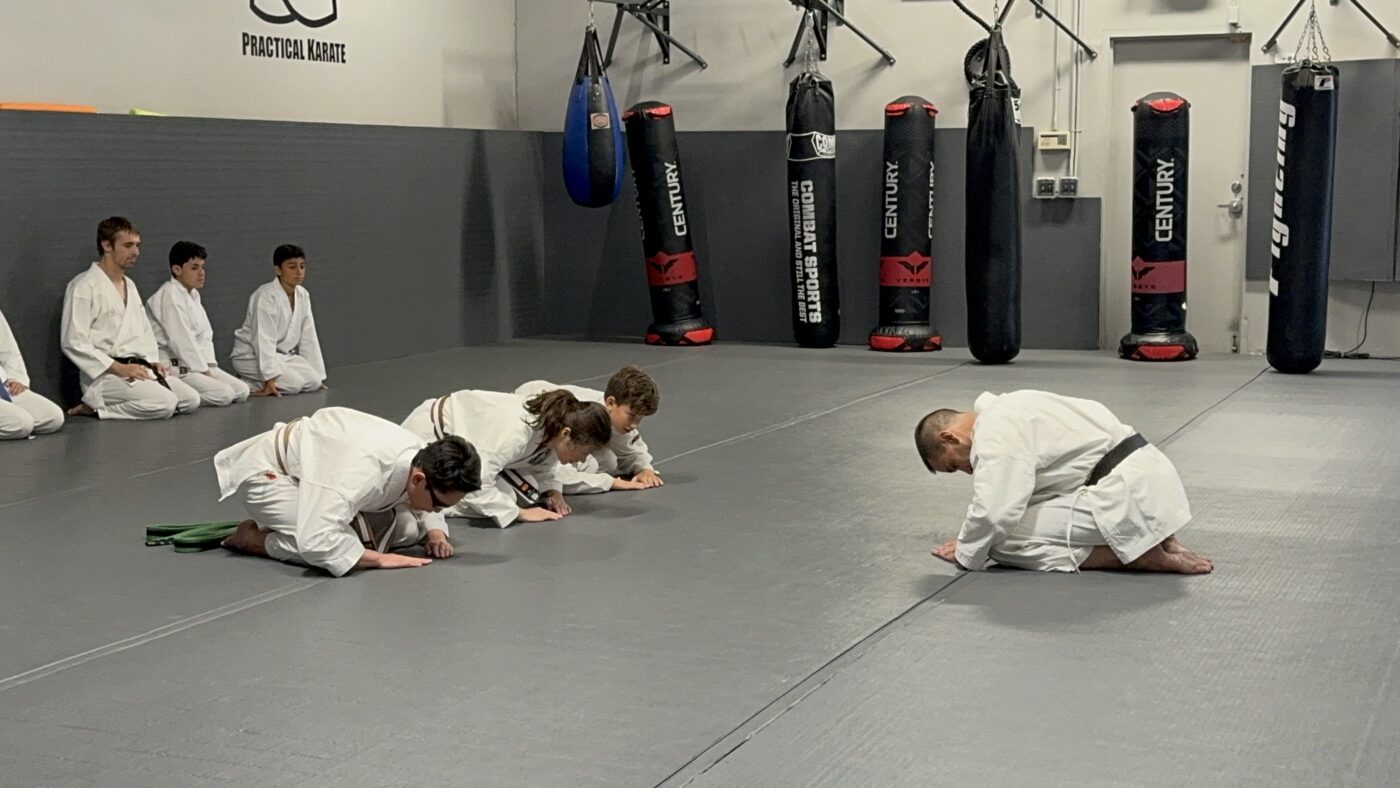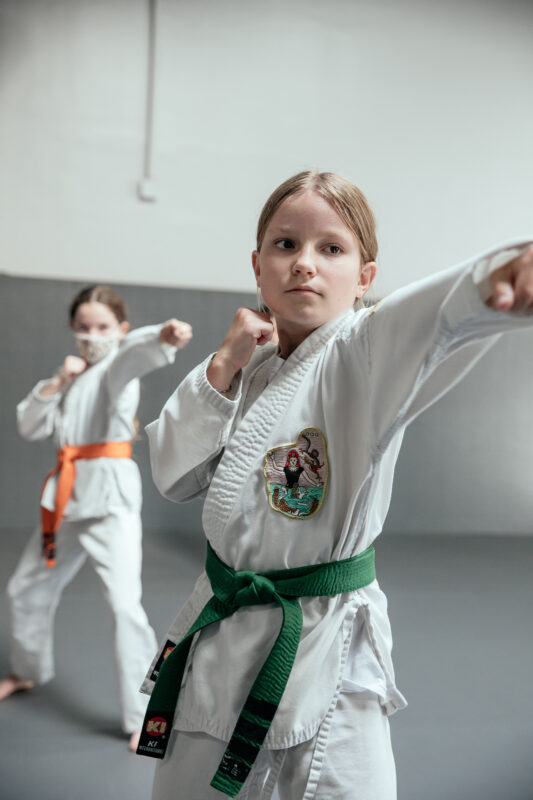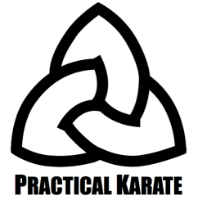Martial Arts
How Practical Karate in San Diego Uses Martial Arts to Teach Kids Life Skills
In a bustling city like San Diego, martial arts schools are more than places to learn kicks and punches, they’re classrooms for life. Practical Karate, a local dojo rooted in the community, treats martial arts as a vehicle for teaching kids essential life skills: discipline, focus, leadership, emotional regulation, and resilience. Through intentionally designed classes, goal-driven belt systems, and everyday mentorship, instructors at Practical Karate turn physical training into character training.
Learning beyond the technique
The first thing parents notice when they bring their child to Practical Karate is how structured the experience is. Every class follows a predictable arc: warm-up and mobility, technical practice, partner drills, and a short game or challenge that wraps up the lesson. That structure is no accident — routine itself teaches children how to manage time and expectations. A warm-up becomes an exercise in listening and preparing; a repetitive kick drill is practice in attention to detail; a partner drill is a practice in respectful communication and cooperation.
Instructors intentionally verbalize the life lesson embedded in each activity. A drill that requires patience and repetition becomes a micro-lesson about delayed gratification; a sparring exercise that stresses safety and control becomes a lesson in managing impulses under pressure. Over time, kids learn to see practice not as punishment but as a path to improvement. This transferable mindset helps with homework, sports, relationships and vocations.
The belt system: small wins, big growth
One of the most effective behavior-change devices in martial arts is the belt progression. Practical Karate uses this graduated system not only to mark technical skill but to teach goal-setting and the value of incremental progress. Each stripe and colored belt represents a small, attainable milestone. Kids who once felt overwhelmed by a long-term goal learn to break it into concrete steps: master three techniques, demonstrate them under pressure, and then move on to the next challenge.
This model of “small wins” builds confidence fast. When a child earns a stripe, the dojo celebrates it publicly — a brief, sincere moment of recognition in front of peers. That public acknowledgement teaches children that effort is visible and valued. Equally important, the system normalizes setbacks. Failing an exam or needing extra practice is framed as feedback, not failure. The next stripe is not out of reach; it’s an invitation to try again.

Discipline, focus, and study habits
Karate requires concentration. Learning a kata (a choreographed sequence) or synchronizing with a partner forces kids to pay attention to posture, timing, and sequence. Practical Karate translates these demands into study skills: how to chunk information, how to focus for short bursts, and how to self-check performance. Instructors teach simple tools — counting out loud, visualizing movements in sequence, and using short, consistent practice sessions — that mirror effective study techniques at school.
Children who struggle with attention often find the dojo’s multi-modal learning approach — verbal instruction, visual demonstration, and physical repetition — much more accessible than lecture-only settings. The dojo becomes a safe place where concentration is practiced and rewarded, and those improved attention skills often carry back into the classroom.
Respect, communication, and emotional regulation
Respect is one of the core tenets of traditional martial arts, and Practical Karate turns that value into a practical social skill. Students are taught to bow to partners, use polite language, and follow safety rules. These formal rituals teach children to show consideration for others, listen when someone else is speaking, and honor shared boundaries.
More subtly, martial arts training exposes kids to regulated stress. A timed drill, a close-contact exercise, or a challenging new technique produces a measurable emotional response: excitement, nervousness, sometimes frustration. Instructors model and coach healthy emotional regulation — breathing techniques, a quick reset routine, or constructive self-talk. Kids learn that emotions are manageable, not overwhelming, and they come away with simple strategies to calm down before reacting emotionally at school or home.
Conflict resolution and confidence without aggression
One of the surprising outcomes parents report is their child’s decreased tendency toward bullying or aggressive behavior.Practical Karate’s emphasis on self-control, accountability, and respect reframes strength as restraint. Children learn the difference between intimidation and defense, and instructors role-play scenarios showing when and how to walk away from conflict.
Confidence built in the dojo is often quiet and practical rather than boastful. Kids learn to trust their abilities: to solve problems, to stand up for themselves appropriately, and to support others. Leadership roles — such as helping younger students during a drill or demonstrating a technique — provide positive outlets for assertiveness. This combination of confidence + ethics produces children who can hold their ground without escalating tensions.
Fitness, coordination, and lifelong health habits
Beyond the character lessons, Practical Karate helps kids develop physical literacy: coordination, balance, agility, and cardiovascular fitness. Regular classes encourage consistent activity habits, a bonus at a time when many children are sedentary. The dojo’s emphasis on progress — measured through performance on drills and belt tests — gives kids a tangible sense that exercise produces measurable improvement, reinforcing healthy routines.
Parents often notice improved posture, better sleep, and a higher tolerance for physical effort. Those bodily changes feed back into confidence and mental well-being, creating a virtuous cycle where physical capability bolsters emotional and cognitive growth.

Community, mentorship, and belonging
A dojo is a small community. Practical Karate builds continuity: siblings train together, families watch from the sidelines, and instructors stay with students for months and years. This stable community gives children a sense of belonging and adult mentorship. That’s especially important for kids who may not have consistent positive role models outside the family.
Instructor-student relationships are often where the real-life lessons stick. A coach who cares about a child’s progress and development can alter their trajectory in life by teaching problem-solving, setting a positive example, and enhancing interpersonal communication skills. These relationships foster trust and open lines of communication where kids can voice concerns, set personal goals, and learn to accept guidance.
Preparing kids for a changing world
What makes Practical Karate particularly “practical” is the way it connects martial training to modern life. Rather than romanticize combat, the dojo emphasizes everyday preparedness: clear thinking under pressure, quick decision-making, and ethical use of capability. Kids don’t just learn to strike; they learn to assess risk, choose de-escalation, and act with integrity when faced with peer pressure or stressful situations.
In a city as diverse and dynamic as San Diego, those transferable skills matter. They help children navigate social complexity, academic challenges, and future leadership roles. The practical martial artist is, in many ways, a better student, sibling, teammate, and citizen.
Practical Karate in San Diego shows how martial arts can be a comprehensive education for young people. Through structured classes, a motivating belt system, intentional emotional coaching, and a supportive community, the dojo turns physical practice into life practice. Kids leave the mat with stronger bodies and clearer minds — but, more importantly, with habits and values that prepare them for the broader challenges of growing up. In that sense, Practical Karate isn’t just about punches; it’s about building the confidence, discipline, and empathy that last a lifetime.


